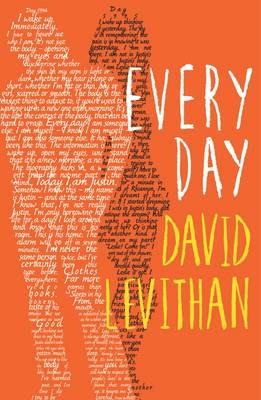Blurb:
In 2083, chocolate and coffee are illegal, paper is hard to find, water is carefully rationed, and New York City is rife with crime and poverty. And yet, for Anya Balanchine, the sixteen-year-old daughter of the city's most notorious (and dead) crime boss, life is fairly routine. It consists of going to school, taking care of her siblings and her dying grandmother, trying to avoid falling in love with the new assistant D.A.'s son, and avoiding her loser ex-boyfriend. That is until her ex is accidently poisoned by the chocolate her family manufactures and the police think she's to blame. Suddenly, Anya finds herself thrust unwillingly into the spotlight--at school, in the news, and most importantly, within her mafia family.
Review:
All These Things I’ve Done is the first book in the Birthright trilogy. The series follows Anya Balanchine, the daughter of a mob boss, and is set in New York in 2083. Anya lives with with her aged grandmother, her older brother and younger sister, and even though she is only sixteen she is effectively head of her household.
The big seller in the blurb of this book is the idea that Anya is framed for attempted murder, something that I thought sounded quite exciting, but I wouldn’t hold your breath if I were you. It doesn’t happen for ages, probably about a thirds of the book in, so it’s hardly the catalyst of the plot. And on top of that, it’s a pretty tame attempted murder, so that was kind of disappointing.
The other aspect played up in the blurb was the love story between Anya and the DA’s son, Win. I got the impression that Anya and Win were going to be star crossed lovers from different sides of the tracks, but it’s not really as exciting as that. Both Win and Anya attend the same elite Catholic private school, both Anya and Win come from quite affluent backgrounds, even though their money has been earned by very different means. Win’s father is the the New York district attorney’s second in command, and because he fears his son’s relationship with a member of the Balanchine family will affect his reputation and candidacy for DA, he forbids them from seeing each other. ( I wouldn’t consider this a spoiler because it was basically written in less detail in the blurb, but it doesn’t happen until quite a while into the story.) While this extremely cliched, at least Zevin mixed it up a bit and made the girl from the wrong side of the tracks.
However, in the end the romance wasn’t even the most important part of the story. Zevin has created an interesting, futuristic, sort-of-dystopian world. New York has turned into a crumbling city fuelled by crime and corruption. In her world Zevin has placed a prohibition on caffeine and chocolate. I couldn’t see any reason for this ban , except to demoralise the civilians, but not one on alcohol, which doesn’t seem to be a problem in Zevin’s New York. Because of this ban , there is a black market trade in chocolate which Anya’s criminal relatives, the Balanchines, are involved in. Severe rationing has been put on fundamental things such as water and paper, no new clothes or books are made, and all types of food are in short supply. Ayna and her sister attend a super elite Catholic private school, which seems completely out of place in this Gotham-style New York. Even though the book is set in 2083, Anya still lives in a patriarchal society. The men in the Balanchine family are irrefutably in charge, and when Anya’s father, the head of the organisation, is killed , Anya’s grandmother is passed over for the top spot. Similarly, they refuse to work with Anya, purely because she is a girl.
Zevin uses Anya’s grandmother in a very interesting way to reflect our time. She was born in 1995, probably the same year the average reader of this book was born. She reminisces back to now, and I found it extremely odd to hear the characters talk about our time as if it were history.
Anya is not the usual YA heroine. Normally the female protagonists are simpering damsels in distress, or mouthy crazy free-spirits. Fortunately, Anya follows in the footsteps of characters such as Katniss and Tris, and manages not to be a complete pain in the ass. Anya’s faith is very important to her, surprisingly enough. Normally religion is left completely out of these futuristic dystopian novels, but Anya is a staunch Catholic and a lot of her choices and actions are based on her faith. While I was impressed by Anya, I was not by Win. Win reminded me of a smarmy Augustus Waters, but ten times worse. If you have a hard time stomaching Augustus, you will have an even worse time trying to put up with Win. Normally the male protagonist s in YA novels are easy to drool over, but Win, for want of a better word, was kind of meh.
Overall a good, futuristic, dystopian novel and I’m looking forward to the next one and seeing where Anya and her family end up. I would recommend this to anyone who like good quality YA dystopian, and it reminded me a bit of Divergent.
Stars: 3 ½ stars





